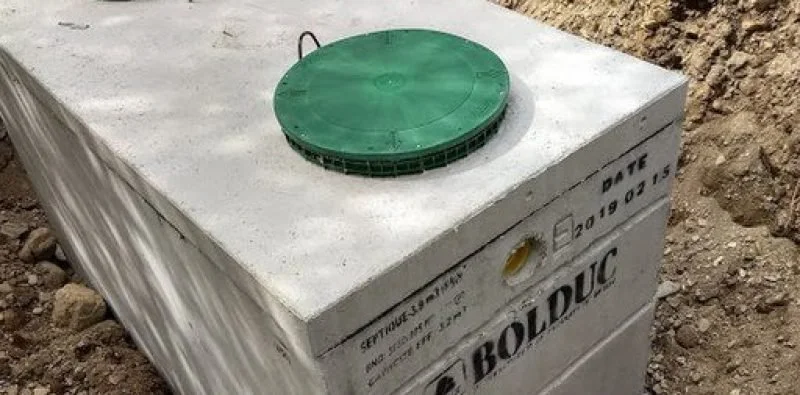What NOT To Put In A Septic Tank
RH Business Marketing Solutions
Septic System and Sewer Plumbing
A septic system facilitates wastewater treatment on a site where a conventional city sewer system is unavailable. It consists of a septic tank and leach field. Septic systems dispose of wastewater from residential, commercial, and institutional buildings, including homes, cottages, cabins, churches, schools, restaurants, motels, and campgrounds.
A septic system is a self-contained treatment facility that uses the natural processes of decomposition and absorption to break down domestic sewage (wastewater) so that it can be safely discharged into the ground without contaminating groundwater or nearby streams. The treatment begins when wastewater flows through a septic chamber where the settling of solids occurs, and there is the formation of floating scum.
The middle layer contains mostly clarified liquid effluent. The clarified liquid effluent then flows through perforated pipes into an absorption field (or leach field), consisting of a series of trenches or mounds containing porous gravel or crushed rock (usually called drain rock). This layer provides an environment where bacteria can grow and break down the wastewater solids into soluble organic materials that are readily absorbed into the surrounding soil, which will eventually drain away, leaving clean groundwater behind.
On the other hand, sewer plumbing is in charge of directing wastewater from a site to a plant responsible for waste treatment. The plumper is responsible for the laying and repairing of sewerage systems. Local governments and private companies primarily operate such waste plants. The funding services are based on the payment of fees and taxes by the property owners and businesses served.
Items not to Flush Down a Septic System
Despite how small an object could be, one must be cautious about flushing it down a septic system. Some things people have to shun flushing down a septic system are as follows.
Feminine Products
People should not be flush products used by women down the toilet. These products include tampons and sanitary napkins. The products are not meant to be flushed down the toilet and can cause clogs and other problems.
Kitty Litter
Kitty litter is another product that is not meant to be disposed of in a septic tank. Kitty litter is made of clay, containing tiny particles that are too small for a septic system to handle.
Dental Floss
Dental floss is made of nylon or other plastic material, which will not break down in a septic system. It can cause blockages in the pipes and the whole system if flushed down the toilet regularly.
Napkins
Napkins are another product that one should not flush down the toilet because they contain multiple layers of materials that bacteria cannot break down in a septic tank or leach field.
Diapers
Diapers are made of multiple layers of material, which will not break down in the septic system. The outer layer of the diaper is a waterproof material, and the bottom is made of plastic. The septic system cannot break down these materials and can cause blockages.
Cotton Balls: Cotton balls are also made with multiple layers that bacteria in a septic system cannot break down. The cotton is wrapped in a paper or plastic shell that holds it together, and bacteria cannot break down both parts. These materials should not be flushed down the toilet regularly because they can cause clogs and other problems for homeowners.
Effects of Flushing Prohibited Items into the Septic System
Flushing prohibited items into the septic systems may result in an inefficient system. The following signs prove the inefficiencies.
The drains, water, and toilet sewage may flow back into the home, which could be a serious health hazard. The drain field may fail, and the sewage may leak and contaminate the soil. The leakage is an environmental hazard because it contaminates the water sources and soil, which causes ill effects on people and animals in the area.
The drainage in sinks, bathtubs and even showers may slow down due to the inefficiencies of the septic system. The slowing down is a sign that the septic tank has gotten full. When this happens, it is best to hire a professional who can clean your septic tank and repair any damages.
The health of the residents in the home may be at risk due to bad odors from bacteria coming from the septic system. The bad smell may irritate people living in the house. Blockages caused by the shunned objects cause a bad smell. A person in a house with a poor-smelling septic system will have difficulty concentrating on other activities and may have health complications such as headaches, nausea, vomiting, fever, and diarrhea.
The home may be infested with insects such as cockroaches, mosquitoes, and ants because dirt and feces around the house attract them. If there is no proper disposal of wastes, a blockage in the sewerage system will create an environment for insects to breed, thus making it necessary for you to use pesticides or insecticides to kill them off, which is costly.
Things to Flush in a Septic System
The septic systems have been designed for particular waste, and they are the ones to be flushed. Toilet paper and human waste are the primary solid waste for septic systems. Other things such as feminine products, condoms, rags, diapers, and other solid waste are not designed for the septic systems.
Written by Taylor Thompson, a Digital PR Specialist representing ADB Construction and Septic.
